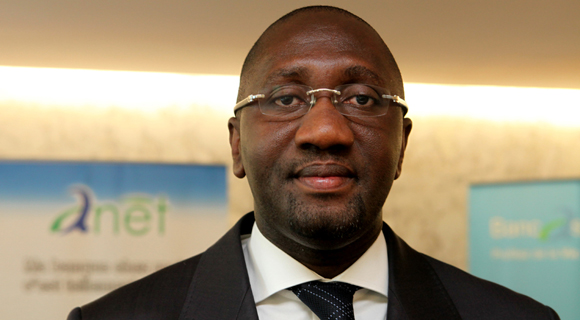Association Professionelle des Banques: Banking Assessment 2011/2012
Souleymane Diarrassouba, President of APBEF-CI
Banks in Côte d’Ivoire were not spared from the effect of the post-electoral crisis; for the first time in Côte d’Ivoire history they had actually suspended their activities.
Interview with Souleymane Diarrassouba, President of APBEF-CI

Let us discuss the perception of risk in Côte d’Ivoire while focusing on the business side of the story. In the banking sector, certitude is a must. How do you see Côte d’Ivoire’s future?
Indeed, the country has been through hard times. Banks were not spared of this fate, either. As you may know, this is the first time that they have to temporarily suspend all activities due to a severe breakdown of the environment on Ivorian territory, from the end of February to the end of April. However, activities have started again. We proceeded to analyze the state of things, so as to determine the losses we had suffered. This is when we became aware of the impact of the crisis on the loan portfolio and learned of the gaps between the actual and expected revenues.

In very little time, banks started offering their services to clients again. As of today, almost everything has gone back to normal. Concerning the forecasts for 2011, four or five months ago, we were told we would have a growth rate of 7.5%. Now, it has a value of 7.8%, which is a good sign. Such things are giving banks faith in the future, fueling their hope that there will be business again, that companies will need funds to achieve their goals. We believe in Côte d’Ivoire’s future.
As you said, the private sector of Côte d’Ivoire suffered great losses prior to the crisis. What were the effects of the crisis on the bank sector? What is the current situation?
The crisis did not start in February for everyone. Long before, in the last term of 2010, it had already begun. Activities in the financial field were disrupted. The crisis affected it on three levels: firstly, there were material damages; secondly, there was the deterioration of the credit portfolio; thirdly, there were losses in revenues. We evaluated the extent of the impact to 100 billion CFA.
Of course all banks were affected, but some had more security than others, while others took a more severe blow. But one thing is for sure, the crisis made it more difficult for them to finance missions of the national economy.
Are you satisfied with the current rules and regulations of the bank sector? According to you, what needs to be done to give the sector strength?
Concerning the forecasts for 2011, four or five months ago, we were told we would have a growth rate of 7.5%. Now, it has a value of 7.8%, which is a good sign. Such things are giving banks faith in the future, fuelling their hope that there will be business again, that companies will need funds to achieve their goals. We believe in Côte d’Ivoire’s future.
A possible means to help the banking sector to recover would consist in a combined effort of the government, the central bank and the banking commission to conceive mechanisms that will allow us to absorb shocks such as the losses we suffered because of the crisis, shocks that fragilized the economic base. We need mechanisms or measures that could eventually be taken by the authorities, by the government. This way, banks will be able to continue managing assets and using those to keep their capacity in funding new, healthy jobs that impact national economy in a good way.
As for regulations, it needs to be in accordance with the needs of our economy. Our economy is still fragile right now, though as everyone says, the future is Africa. Everything needs to be redone, but there are so many possibilities. However, regulations must not be an obstacle to financing; they must not be too rigid. At the moment, it is, and banks cannot fully provide funds for investment as they should. When I say investment, I mean development, poverty alleviation. I think that by doing that, populations would better understand the importance of banks in our economy. Until 2008, according to statistics, investments done by banks and funds provided by them to those ends are not over 28%, so there is a considerable margin. Development is key; of investments, of financial leasing, so that our economy becomes completely focused on exactly that: development.
Foreign banks were not as severely affected by the crisis as local banks. How can we compare local banks and international banks?
“International“ banks, as they are sometimes called, often have more equity. Also, some banks may not finance every industry sector; for instance, SME, SMI, which suffered quite a lot due to the crisis. Finally, those kinds of banks are often better capitalized than smaller banks. Adding up the numbers, international banks can more easily absorb losses of, say, 500 billions, than a local bank. At the end of December, everyone was supposed to comply with the minimum amount of equity, but the events at the beginning of 2011 made this more difficult to monitor.
At present, we are trying to figure out how to ensure that the rules are observed. We submitted our propositions to authorities, and now, we are waiting and hoping to be heard by them. Because if at the end of the day, everyone pretends that nothing happened in Côte d’Ivoire, it wouldn’t be an ideal situation. I also believe that restructuring of the bank sector should be done as soon as possible.